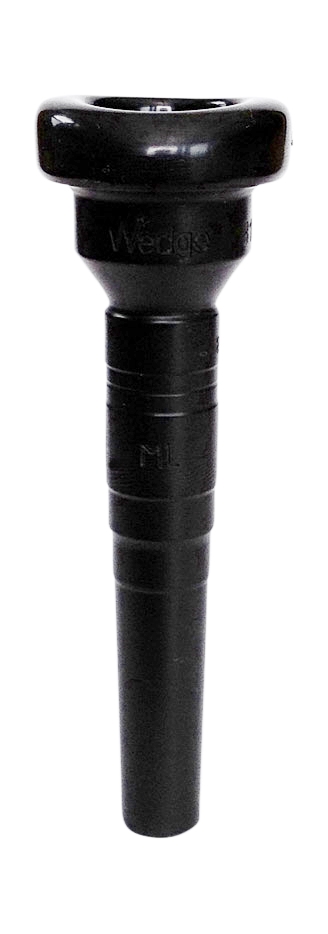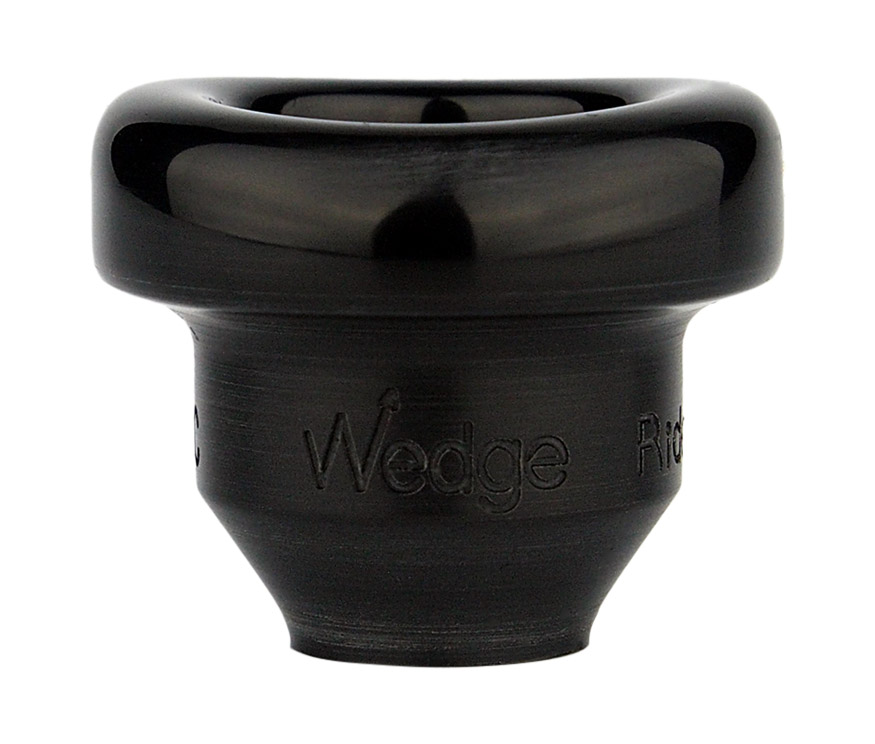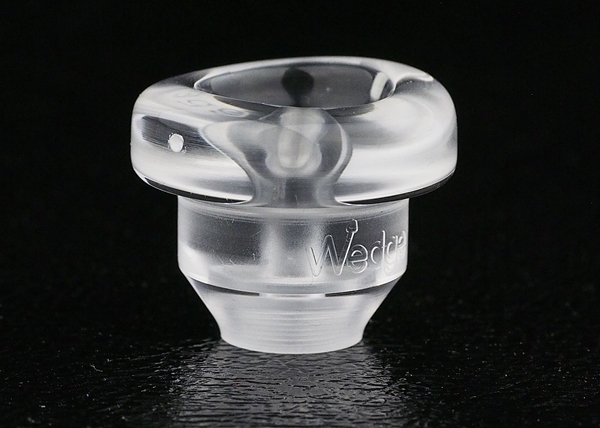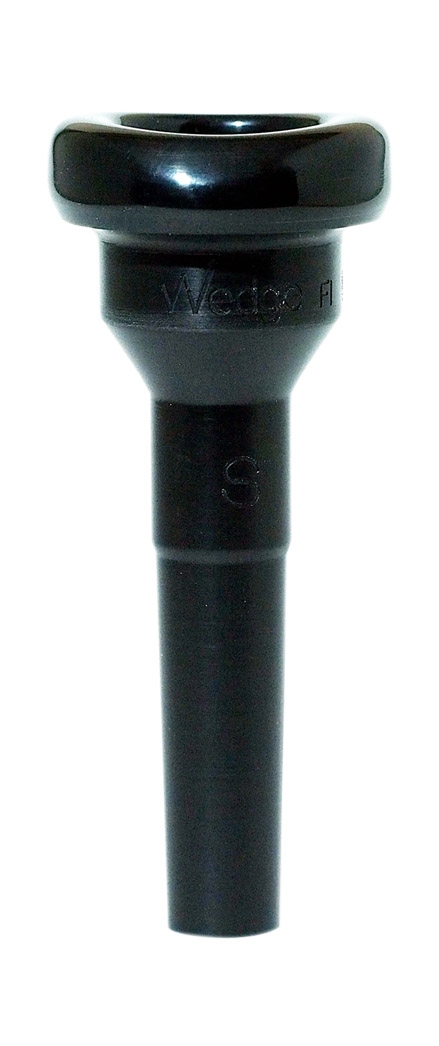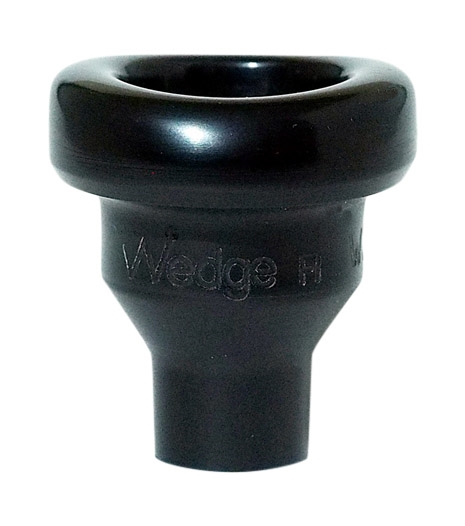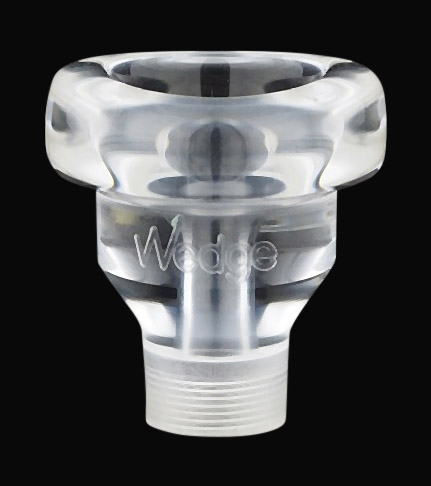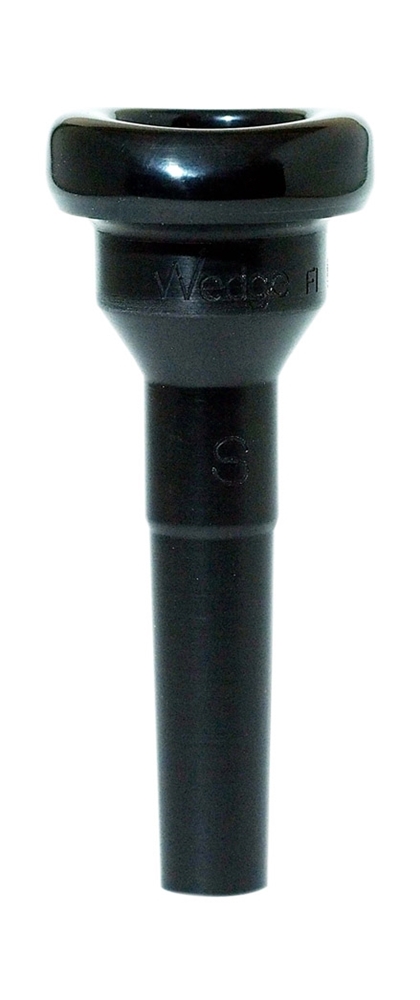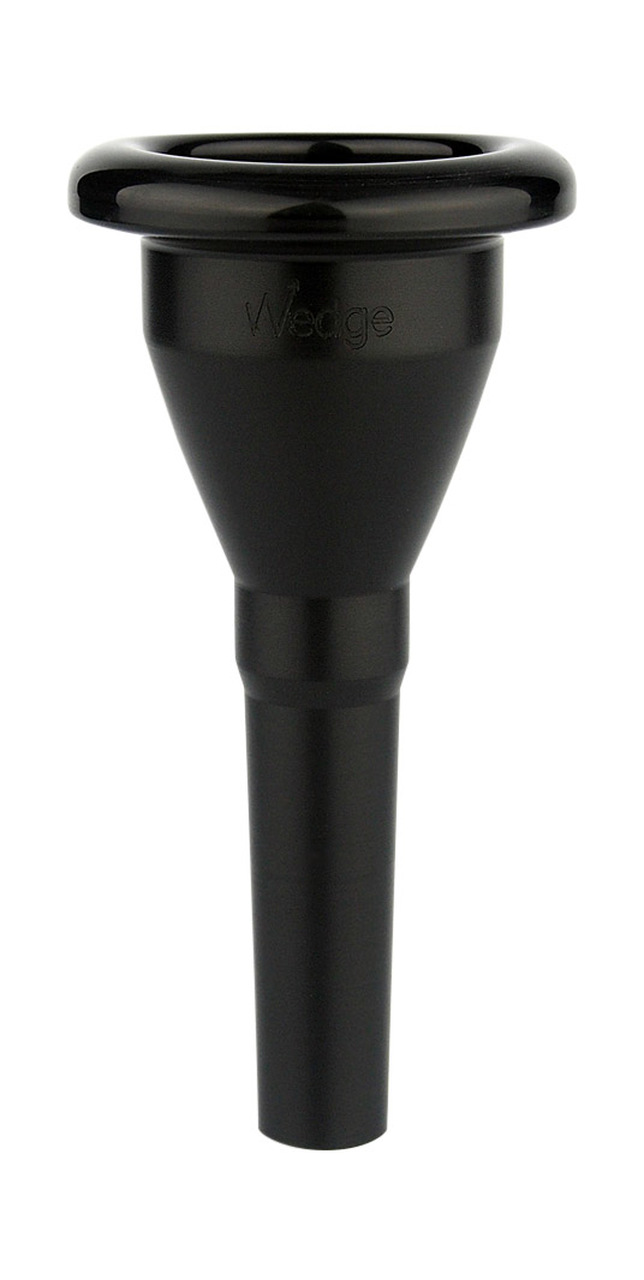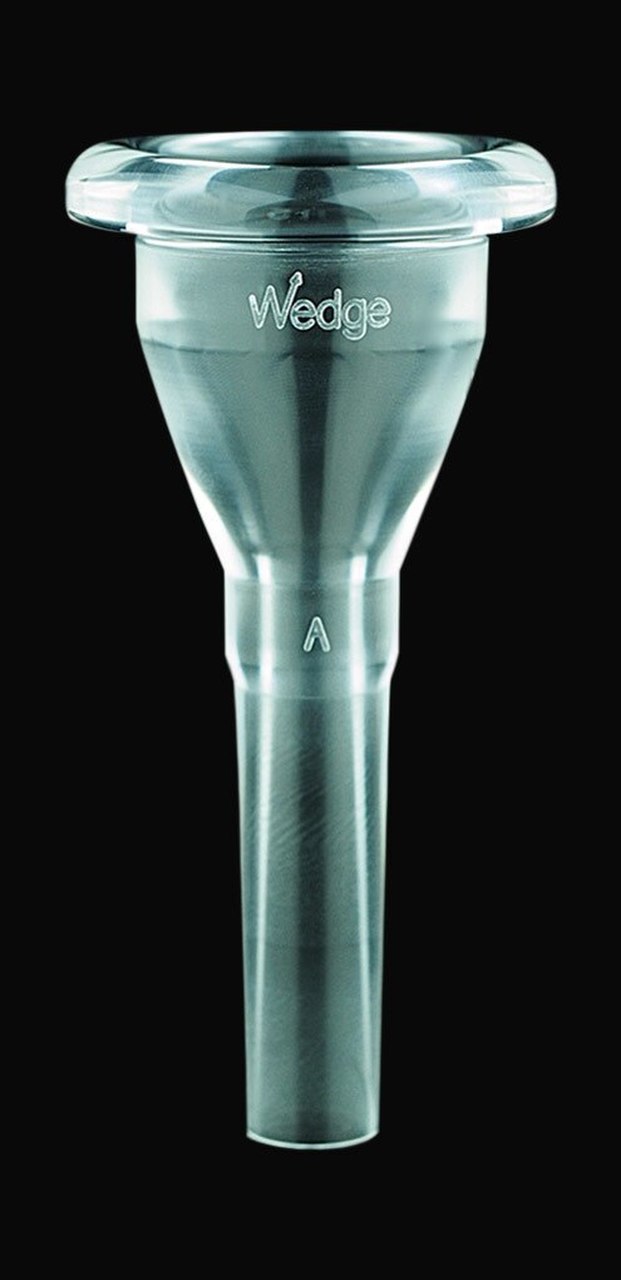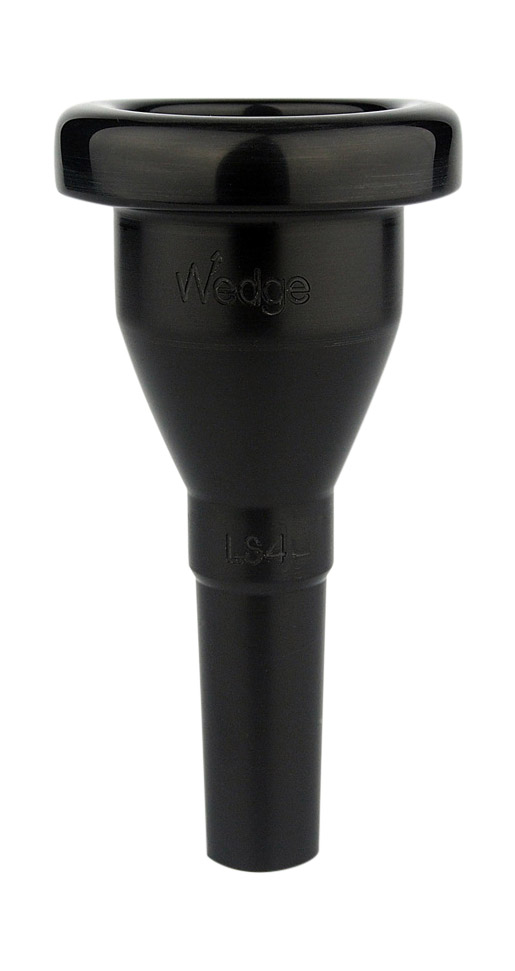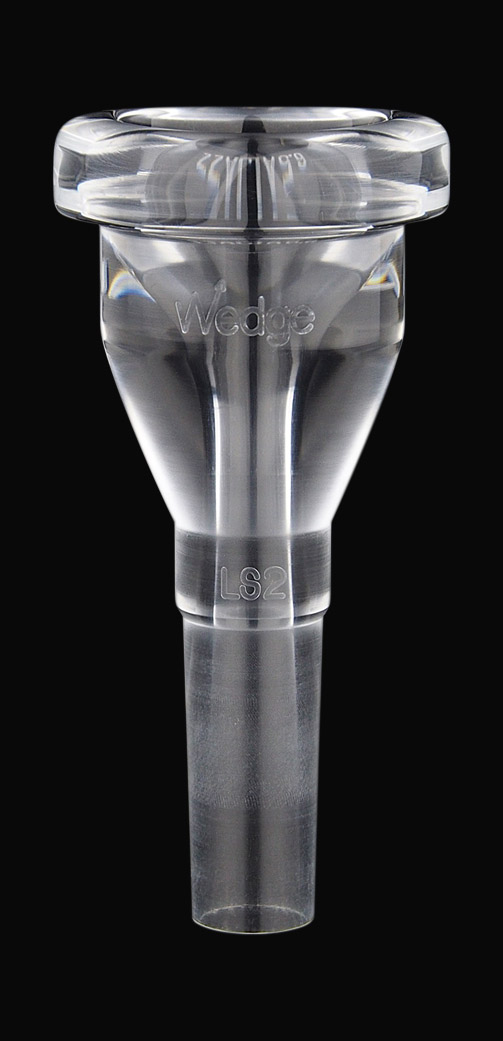Should I choose plastic or brass?
Many of our plastic mouthpieces have been discontinued and will only be available while supplies last. Dr Dave's revolutionarly Hybrid mouthpieces are now available for all instruments and are an amazing alternative to plastic mouthpiece.
The “entry-level” Wedge mouthpiece is made of either Delrin or Acrylic. Delrin and Acrylic both have the advantage of always feeling warm to the touch. Delrin is softer than Acrylic and feels as though it has a little give. For that reason it is great for players with braces. However, the surface of Delrin is quite sticky and some players find it slightly abrasive when they first start playing it. Acrylic has more grip than silver plated brass but less than Delrin. The stickiness of Delrin can reduce flexibility somewhat.
Delrin is very tough and resistant to chemicals. Acrylic is far more brittle and can crack if dropped on a hard surface. Delrin would just bounce. Acrylic can craze or crack if exposed to some chemicals, such as solvents or alcohols. That is why you should never clean an Acrylic mouthpiece with alcohol.
Delrin has a very dark sound which lacks brilliance and core. The sound is less resonant than brass. Notes do not slot as securely as with a brass mouthpiece. Acrylic has playing characteristics intermediate between Delrin and brass. Plastic mouthpieces speak very quickly. It is easy to start a note very quietly with either Delrin or Acrylic. However, the point of the note with Delrin’s indistinct and lacks pop. Acrylic is also very responsive and has more point on the front of the note, sounding almost like brass.
Adding a brass tone modifier to a one piece plastic mouthpiece, or in the case of a trumpet, cornet, or flugelhorn mouthpiece, using a plastic top with a metal backbore, greatly improves the playing characteristics of plastic. In fact, an acrylic mouthpiece with a brass tone modifier or backbore is very difficult to distinguish from brass in terms of sound.
The next step up in the Wedge line is a silver plated brass mouthpiece. In most cases a silver plated brass mouthpiece is the best way to compare the playing characteristics of a Wedge mouthpiece to a regular mouthpiece since the only variable is the rim and cup design, rather than the material. Adding gold plating to a mouthpiece does not affect the way it sounds, nor does it affect its thermal characteristics. Adding gold does make the rim more slippery and smoother feeling.
French horn rims are available in Delrin, Acrylic, or brass. Trombone screw rims are available in Delrin or brass. Plastic rims added to a brass cup have a somewhat darker sound than an all brass mouthpiece.
Plastic is a good alternative for players with allergies.
What is the bottom line? For most players a silver plated brass mouthpiece will give the best performance. Some players actually prefer to play on a plastic mouthpiece, either because of allergies or because they prefer the characteristics of the plastic rim. For players on a budget a plastic mouthpiece or plastic mouthpiece with a brass tone modifier is a great way to try a Wedge.
Plastic Options (available while supplies last)
